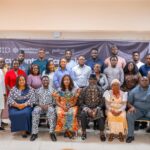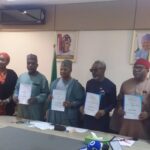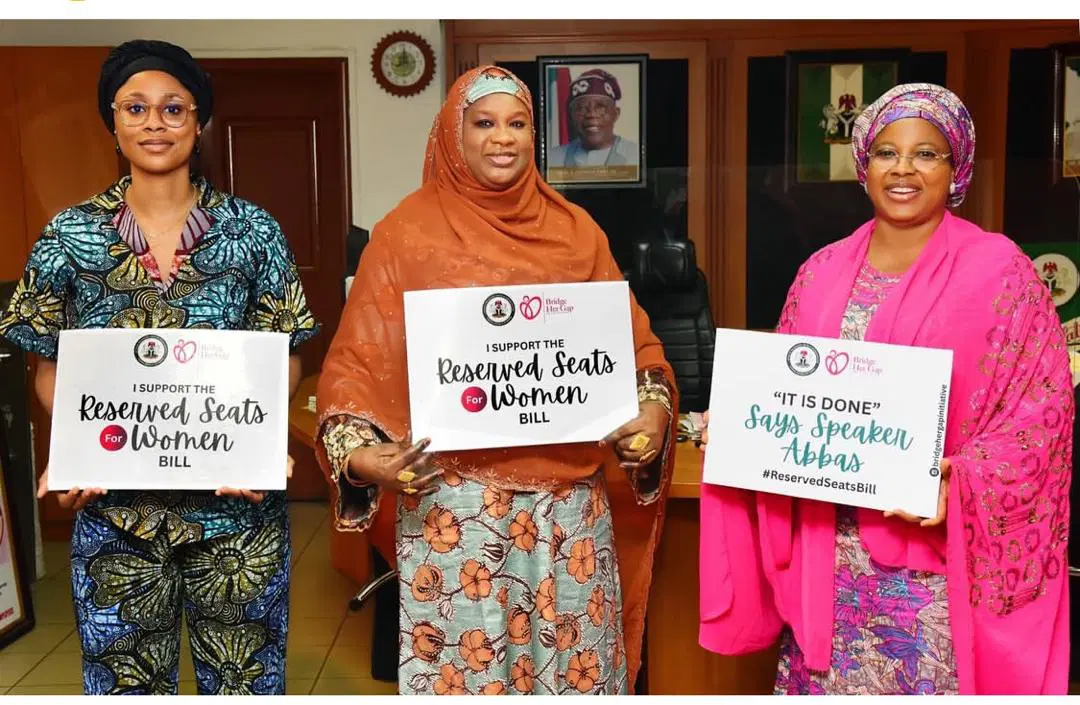By Justina Auta, News Agency of Nigeria (NAN)
The clamour for increased representation of women in Nigeria’s political space has once again come to the fore, as stakeholders await the outcome of the Reserved Seats Bill currently before the National Assembly.
The bill, also referred to as “Additional or Reserved Seats Bill’’ seeks to alter the 1999 Constitution of the Federal Republic of Nigeria to provide reservation for women in the National and State Houses of Assembly to address the low number of women in the legislature.
If passed into law, the bill will address the long-standing concerns of women underrepresentation in governance and decision-making by ensuring that these special seats are to be contested and filled by women only as a temporary measure to boost their representation.
The bill proposes the creation of one Special Seat for women per Senatorial District and one per Federal Constituency to be contested by women in general elections of which they will have the same privileges and responsibilities as existing members.
This political solution is expected to exist alongside the current constituency seats and will be in place for a limited number of election cycles, after which they will be reviewed to strengthen women’s political inclusion.
Political analysts say Nigerian women’s political representation in the NASS has steadily declined since 2007, when 36 women held seats; nine in the Senate and 27 in the House of Representatives.
Currently, women occupy less than seven per cent of elective and appointive positions across the country, a figure far below the 35 per cent affirmative action benchmark recommended in National Gender Policies and international conventions to which Nigeria is a signatory.
Recently, Hajiya Imaan Sulaiman-Ibrahim, Minister of Women Affairs, raised concerns at the ninth Voice of Women conference and awards in Abuja.
“Currently women occupy less than six per cent of seats in the National Assembly, far below the African Union target of 50 per cent parity and beneath the global average of 26.5 per cent.
“In State Assemblies, women’s representation is less than 5 per cent nationwide.
“By contrast, Rwanda has achieved 61 per cent female representation in parliament, while South Africa has over 46 per cent.
According to Sulaiman-Ibrahim, the figures highlight just how far behind Nigeria is and why decisive action is urgently needed.
“Our Reserved Seats Bill has the potential to open a new chapter in political inclusivity.
“By institutionalising women’s participation, we align with international best practices and strengthen democracy at home.
“This is why the Reserved Seats Bill is so significant; it is not an act of benevolence; it is an act of justice and strategic necessity.
“By guaranteeing space for women in governance, we align with global best practices, ensure a more inclusive democracy, and unlock the full potential of half of Nigeria’s population,” she said.
Similarly, the Policy and Legal Advocacy Centre (PLAC) says the current figures show that “only four women out of 109 are in the 10th Senate; 16 out of 360 in the House of Representatives; 54 in the 36 State House of Assemblies (out of 990 seats nationwide), while 14 State Houses of Assembly have no female legislator.’’
According to PLAC, its recent survey on the cost and benefits of the Special Seats bill shows that the cost of the additional members in the National Assembly being sought will amount to less than one per cent increase in the annual national budget.
“We urge members of the National Assembly to support the Special Seats Bill.
“The passage of this bill is not just a matter of representation, but a legacy opportunity for the 10th National Assembly and an opportunity to deepen Nigeria’s democracy by opening the door to inclusive leadership,’’ it said.
Supporters of the bill describe it as a bold step towards bridging the gender gap in governance.
They argue that the reserved seats will not only guarantee women’s voices in parliament but also inspire more women to participate actively in politics.
President Bola Tinubu, represented by Mr George Akume, Secretary to the Government of the Federation, at the National Public Hearing on Constitution Alteration Bill, declared his support for the passage of the bill.
“This is particularly important as it resonates from the Renewed Hope Agenda which seems to enthrone good governance, inclusivity and sustainable development.
“Today’s process is about giving Nigerians renewed confidence and their voices matter in shaping the future of our democracy.
“I assure you that the outcome of this process will receive the desired and deserved attention as part of our collective quest to build a stronger and more united Nigeria,’’ he said.
On his part, Abbas Tajudeen, Speaker, House of Representatives, described the bill as a necessary legal tool to accelerate inclusion and correct historical gender imbalances.
“This is not for pity’s sake but a constitutional mechanism to accelerate gender inclusion,” he said.
Also, Deputy Speaker of the House of Representatives, Benjamin Kalu and Chairman House Committee on Constitutional Review, emphasised that the Reserved Seats for Women Bill, seeks to guarantee gender balance and promote inclusive governance in Nigeria.
Kalu, represented by Dr Sam Hart, his Chief of Staff, at a Special Dialogue on Reserved Seats Bill Under SheThePeople Platform, said that the bill was not an act of tokenism, but a commitment to enhance women’s political representation and address gender disparity in governance.
“This bill is not just a piece of legislation, neither is it an act of tokenism.
“It is proof of our collective commitment to change the narrative and to disrupt the status quo that has long sidelined women from decision making tables,” he said.
Kalu stressed the need to examine the electoral laws, party politics and societal norms that hinder women’s representation and create an inclusive and equitable society.
He reaffirmed the commitment of the legislature to advocate for policies that will see women, not as tokens, but as equal partners in governance, urging all stakeholders to commit towards gender equality.
On her part, Mrs Mary Ikoku, Founder, SheThePeople platform, said that the reserved seats for women would ensure inclusive representation and reflect the diversity of Nigerian society.
“We are not asking for favour; what we are asking for are just constitutional rights of women and girls to have rights to leadership,” she said.
Meanwhile, Aisha Yesufu, a renowned political and human rights activist, during a panel discussion, urged the National Assembly to pass the bill to enable the country to thrive and promote gender equity.
As Nigeria inches closer to another election cycle, stakeholders agree that the conversation must go beyond numbers to genuine inclusion, where women’s contributions are recognised and harnessed for national development.(NANFeatures)
***If used, please credit the writer and the News Agency of Nigeria.












